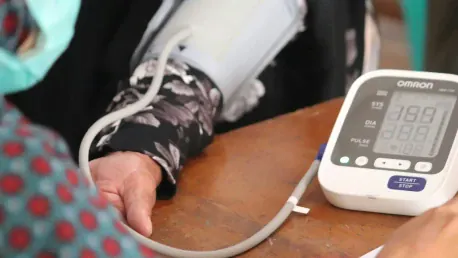Piedmont Healthcare, a not-for-profit health system operating 1,755 locations across Georgia, is leveraging predictive analytics to improve medication adherence for patients with high blood pressure (hypertension), aiming to reduce the associated risks of heart disease, stroke, and chronic kidney disease. This groundbreaking initiative focuses on integrating advanced data analytics into their health information systems, thus providing a more tailored approach to patient care. Given that an estimated 91.7 million adults in the United States require medication for hypertension, with over 30% of Georgia’s adults aged 20 and older afflicted, the importance and timeliness of this initiative cannot be overstated.
The initiative primarily uses prescription fill data combined with predictive analytics to identify patients who are in the highest need of intervention. By doing so, Piedmont Healthcare is able to significantly enhance adherence rates and improve clinical outcomes. One of the key aims of this program is to better patient safety and meet value-based care objectives, which focus on providing health services that are of high quality and cost-effective. The initial results from this initiative have already begun to show promise, exhibiting notable improvements in both medication adherence and diastolic and systolic blood pressure values. Furthermore, the intervention has tangibly reduced wasted clinician time, allowing healthcare providers to allocate their efforts more efficiently.
Integrating Predictive Analytics for Early Intervention
Predictive analytics plays a pivotal role by enabling healthcare providers to identify at-risk patients through integrated electronic health record (EHR) systems and other health information technologies. These predictive models are fine-tuned using additional data from population health management systems, including prescription fill history. This comprehensive, data-driven approach empowers clinicians to make more precise decisions and focus their interventions on the patients who need it most. Ultimately, these targeted interventions help improve adherence to medication regimens and produce better patient outcomes overall.
Tim Hall, a senior business intelligence developer at Piedmont Healthcare, has been a key figure in highlighting the importance of incorporating social determinants of health into predictive models. By doing so, the healthcare system can develop more individualized and automated interventions, making the process even more effective. Building a successful predictive analytics model, as Hall points out, requires considerable investment in time and resources. It also necessitates a multidisciplinary team comprising developers, business owners, executives, operations personnel, clinicians, analysts, and other stakeholders to ensure its effective implementation. Success metrics should include clinical impact as well as any financial or operational issues the healthcare organization aims to resolve.
Enhancing Value-Based Care through Data
Piedmont’s initiative aligns with the broader industry shift towards value-based care models, which prioritize patient outcomes and cost-efficiency. The healthcare system employs predictive analytics not just to enhance treatment but also to contribute to overall healthcare savings by reducing long-term complications associated with hypertension. Through meticulous data collection and analysis, Piedmont has been able to fine-tune their predictive models, ensuring that they only provide the most relevant and timely interventions. The success of these models underscores the potential of data analytics to transform healthcare delivery on a larger scale, benefiting both patients and providers alike.
Hall will present the detailed findings and development approach during the HIMSS25 session titled “Implementing Predictive Analytics to Improve Medication Adherence,” which he will co-host with Dr. Thomas Wells and Melissa Robinson, PharmD, both of Piedmont Healthcare. This event is set for Thursday, March 6, from 8:30 to 9:30 a.m. in Caesars Forum 115. The session aims to dive deep into the intricacies of integrating predictive analytics into existing clinical workflows. Through such presentations, healthcare providers from various backgrounds can gain insights into leveraging data-driven strategies to improve patient care.
Future Implications of Predictive Analytics in Healthcare
By combining prescription fill data with predictive analytics, Piedmont can pinpoint patients most in need of intervention, boosting adherence rates and clinical outcomes. The program’s objectives are to improve patient safety and achieve value-based care goals, which focus on delivering high-quality, cost-effective health services. Preliminary results are promising, showing improvements in medication adherence and blood pressure levels. Additionally, the intervention has reduced wasted clinician time, allowing healthcare providers to use their efforts more effectively.









